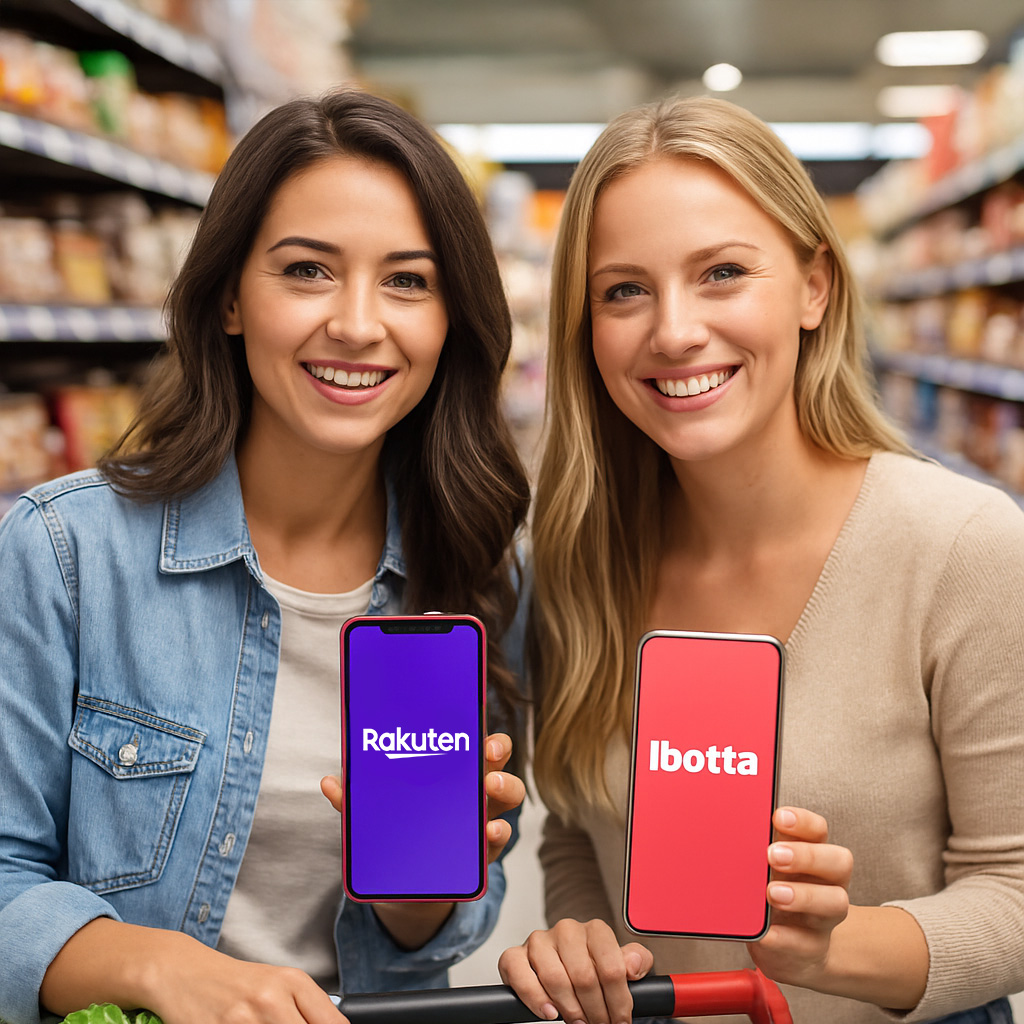Rakuten vs Ibotta: Must-Have Cashback Apps Compared for 2025
In the ever-evolving world of online shopping and savings, Rakuten and Ibotta continue to be two of the most popular cashback apps, helping consumers stretch their dollars further. As we move into 2025, savvy shoppers are on the lookout for the best ways to maximize rewards, and these apps offer standout features for cashback enthusiasts. But which one truly deserves a spot on your phone? This detailed comparison of Rakuten vs Ibotta will break down their offerings, usability, and benefits to help you make an informed choice.
What is Rakuten? A Quick Overview
Rakuten, founded in 1998, has grown into a global online cashback giant. Originally known as Ebates, Rakuten partners with thousands of retailers, providing users with cashback deals on a wide array of purchases—from everyday essentials to luxury items. Rakuten works primarily as a browser extension and app, offering cashback for both online shopping and select in-store purchases.
What is Ibotta? An Introduction
On the other hand, Ibotta is a more recent player in the cashback arena, launched in 2012 with a primary focus on groceries and everyday items. Ibotta distinguishes itself by combining cashback offers with rebates on in-store purchases, receipt scanning, and brand-specific promotions. It has rapidly gained traction, especially among shoppers who frequent supermarkets and drugstores.
Rakuten vs Ibotta: How They Work
Understanding the mechanics of Rakuten and Ibotta is crucial for deciding which app aligns with your shopping habits.
Rakuten’s Approach
Rakuten operates mainly through affiliate partnerships with retailers. After installing the app or browser extension, users simply click through to partner websites and make purchases as usual. Rakuten tracks the transaction and credits the user’s account with a percentage of the purchase price, which can range from 1% to 40% cashback depending on the retailer and promotion.
Rakuten also provides in-store cashback via location tracking and linked cards, but its primary strength remains in online shopping.
Ibotta’s Methodology
Ibotta takes a slightly different route. Its cashback rewards often require users to activate specific offers before shopping, such as selecting deals on particular brands or products. After purchase, users verify their transactions by submitting receipts or linking loyalty cards from participating retailers. Ibotta then credits the cashback amount to their accounts.
Ibotta is especially strong in grocery rebates, making it ideal for regular supermarket shoppers looking to save on daily essentials.
Comparison of Features: Rakuten vs Ibotta
User Interface and Experience
Rakuten offers a straightforward interface that integrates well with browsers and mobile devices. The auto-activation of cashback with online stores is seamless, requiring minimal effort from the user. Additionally, Rakuten’s browser extension alerts users when cashback is available, which enhances convenience.
Ibotta provides a more hands-on experience, encouraging users to browse offers, activate deals, and submit receipts. Its app is user-friendly and visually engaging, with clear categories for groceries, alcohol, apparel, and other goods, but it requires a bit more active participation.
Cashback Rates and Variety
When it comes to cashback amounts, Rakuten often provides higher percentage returns on non-grocery items like electronics, fashion, and travel bookings. Promotions can reach up to 40%, especially during special sales or holiday events.
Ibotta specializes in frequent smaller rebates, often $0.25 to $2 per product, with occasional bonuses for large purchases or brand combinations. However, Ibotta’s strength lies in everyday grocery savings that add up over time.
Payout Options and Thresholds
Both apps offer flexible payout options, but with slight differences:
– Rakuten pays users via check, PayPal, or gift cards, with a $20 minimum withdrawal threshold. Payouts occur quarterly, which some users find less frequent but dependable.
– Ibotta allows instant transfers to PayPal, Venmo, or gift cards once the user’s balance reaches $20. Ibotta also offers a low balance payout option ($1 minimum) via gift cards for added flexibility.
Special Features and Bonuses
Rakuten occasionally offers sign-up bonuses ($30-$40) and seasonal promotions. Their referral program rewards both the referrer and referee with cashback bonuses, adding value through community sharing.
Ibotta shines with its “Teamwork” feature, encouraging users to collaborate and complete group savings goals, unlocking extra bonuses. The app also presents daily challenges and streaks to motivate users to keep shopping via the app.
Which Cashback App is best for 2025?
Choosing between Rakuten and Ibotta largely depends on your shopping preferences.
– If you primarily shop online, want a passive cashback experience, and prefer big savings on a variety of items beyond groceries, Rakuten is likely your best bet.
– For shoppers focused on groceries and in-store deals who don’t mind activating offers and submitting receipts, Ibotta can yield consistent savings and rewarding bonuses.
Many savvy shoppers use both apps in tandem to maximize rewards—for example, using Rakuten for online fashion and electronics purchases and switching to Ibotta when hitting the grocery aisles.
Final Thoughts
In 2025, the competition between Rakuten vs Ibotta remains fierce, but both cashback apps continue to innovate and cater to different user needs. Rakuten’s ease and broad retail partnership make it ideal for online savings, while Ibotta’s targeted rebates and grocery focus appeal to regular shoppers looking for extra discounts.
By understanding how each app operates and leveraging their unique strengths, you can ensure that every dollar you spend earns a little something back. Whether it’s Rakuten’s generous online cashback or Ibotta’s everyday grocery rebates, using these apps wisely will keep your savings growing throughout the year.
